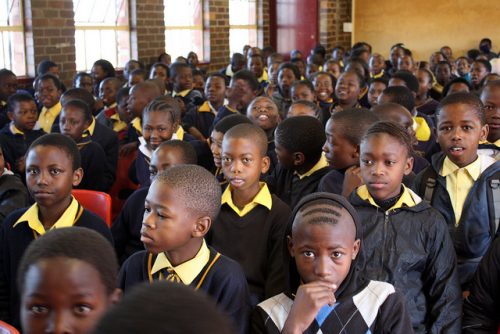Thabo Mbeki’s legacy in education in South Africa is alarming. It’s a known fact of course that the system of apartheid was supposed to keep the African people under. Apartheid was a barbaric system designed to ensure that Africans in South Africa would be a permanent underclass. However, Thabo Mbeki did little to change access to education for the majority of South Africans.
Apartheid patterned after Nazism was meant to uphold the white foreign and minority superiority. The foreigners were given all the resources. In 1993, South Africa gained its independence with which was supposed to be a reversal of the apartheid policy. By by the year 2000, it became apparent that the institution and policies of apartheid were still working in South Africa.
- Only 48.9% of the population that sat for the matriculation exam in 2000 passed.
- Only 32% of those who entered secondary school actually sat for the Matric exam.
- South Africa had a dropout rate of more than 50%
- Students tended to do well In the Cape Western Cape
- Private schools had an average of a 99% pass rate which means students with lower socioeconomic status continued to be disadvantaged
- In Western Cape there were no gender differences.
- In the Limpopo area girls had a 7% lower pass rate than boys.
When you look at the education policies of the Limpopo it makes sense why Limpopo became a stronghold of the Economic Freedom Fighters (EFF). The Mbeki government obviously failed the youth of South Africa.
- In Kwa Zulu Natal province they had a shortage of 14,000 classrooms in 2003. This meant of course that upward mobility would be difficult for children in that area.
- In the Eastern Cape province conditions in the classrooms were deplorable in the year 2000, 17% of the schools had no toilets 45% had no electricity and 28% had no water drunkenness absenteeism and use of drugs was prevalent creating a hopeless situation.

Reform
- In 2006, Mbeki then declared that the government had built 179 new schools and would be spending R1.5 billion or 21% of the national budget on education.
- In May 2006, 100 students who attended a high school in Orlando Soweto had only one qualified teacher.
These results are the legacy of Thabo Mbeki. A study by the Witwatersrand University showed:
- 43% of all South Africans schools had no electricity
- 27% had no running water
- 80% had no library





One response to “South Africa: The Legacy of Thabo Mbeki’s Education Policy ”
What a shame to preside over such ab atrocious education system.